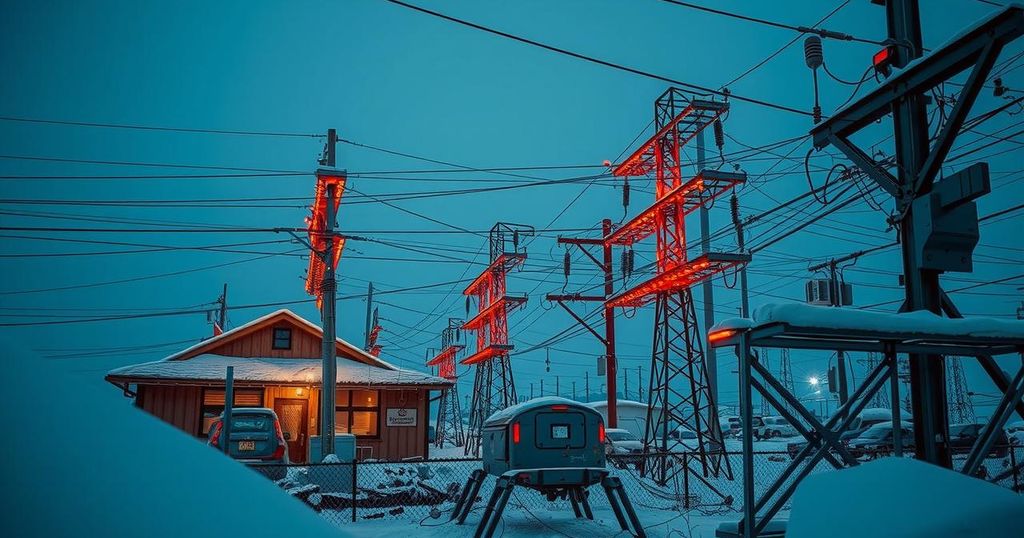Bomb Cyclone Exposes Weaknesses in Washington’s Electrical Grid

The bomb cyclone that hit Western Washington caused extensive power outages for nearly half a million residents, revealing critical weaknesses in the region’s electrical grid. Experts call for significant upgrades to meet rising electricity demands and improve the utility’s ability to maintain communication during emergencies. A shift toward renewable energy is essential, yet operational challenges remain regarding repairs and resource availability within the utility sector.
The recent bomb cyclone that struck Western Washington has illuminated significant vulnerabilities within the region’s electrical grid. This catastrophic weather event resulted in widespread power outages affecting approximately half a million residents, as its high-velocity winds uprooted trees and brought down power lines. The resulting challenges for utility companies included complex repairs across thousands of damaged locations, leaving numerous homes, schools, hospitals, and businesses without electricity for an extended period.
The Pacific Northwest’s energy infrastructure is under scrutiny following the havoc wreaked by the bomb cyclone. As utilities work towards transitioning to renewable energy sources in compliance with state regulations mandating carbon neutrality by 2045, experts emphasize the necessity of substantial enhancements to the existing grid. This recent storm not only laid bare the deficiencies in power restoration protocols but also raised questions about the adequacy of communication between utility companies and emergency responders.
In conclusion, the recent bomb cyclone has underscored the urgent need for significant modernization of Washington’s electrical grid. Effective strategies must be developed to ensure robustness against extreme weather events, improve communication during outages, and integrate renewable resources into the energy mix. As the region continues to face increasing demand for electricity amid climate challenges, systemic reforms and investments will be essential to ensure reliable service for all citizens and prevent future crises.
Original Source: www.seattletimes.com






